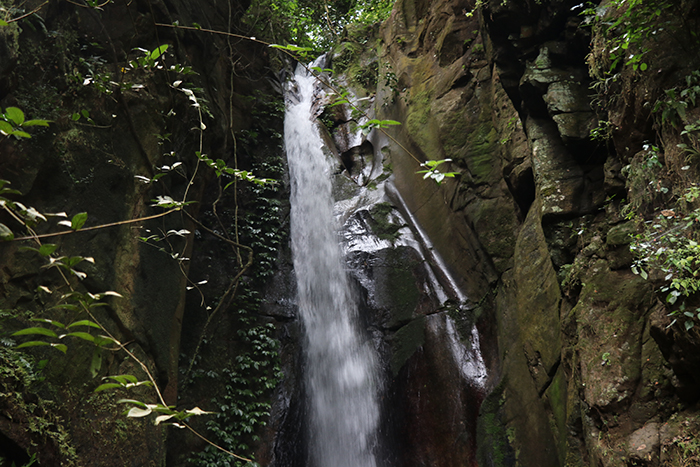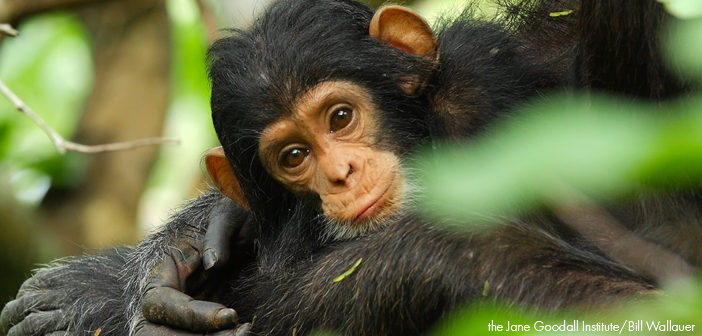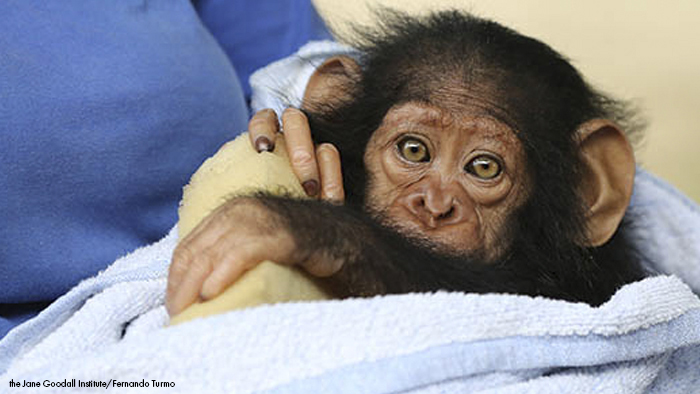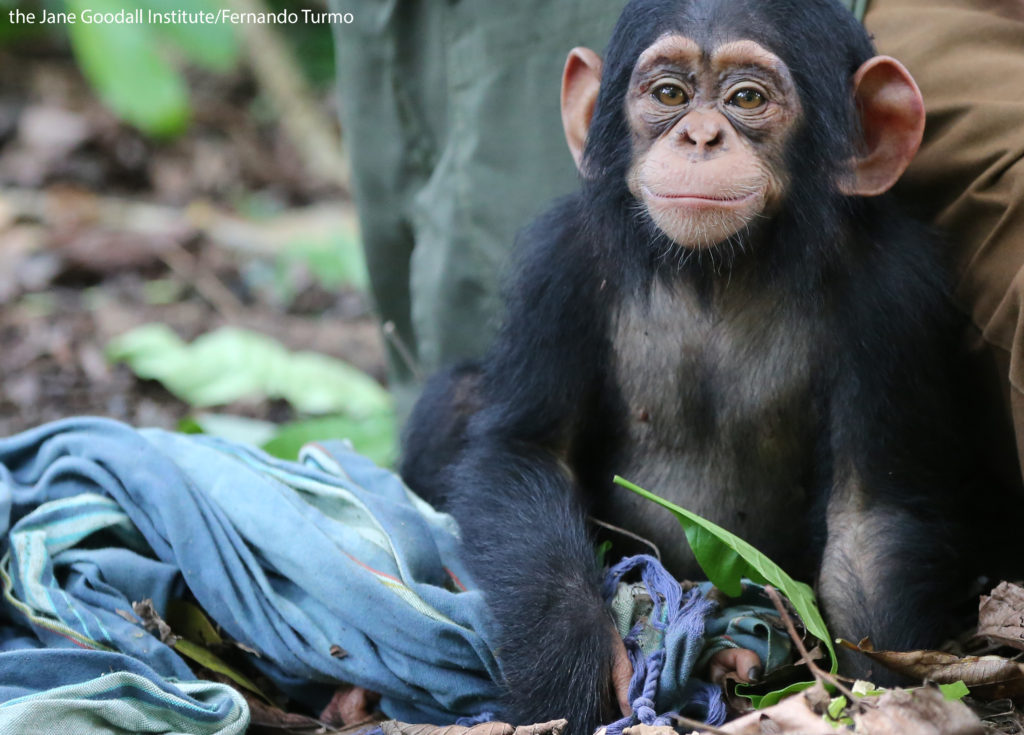We are currently experiencing a great test to our core philosophy – that there is always hope and that hope has the power to transform our world for the better. The COVID-19 coronavirus pandemic is a crisis that will touch nearly everyone, affecting not only those who become ill, but also so many who are suffering already because of the impact on livelihoods, transportation, the education system and medical services. In the face of this time of uncertainty, and indeed because of it, we are ever more committed to the pursuit of our mission and to spreading hope! We are thinking of all of you and want to share our love and support – especially for those caring for others, and those working to end this illness and stop its spread.
We are social beings and we live in a globalized world – but the best way to slow and decrease the spread is what is called ‘social distancing’, meaning avoiding social spaces and interactions. Though you may feel that you will be fine, you could infect others – vulnerable people – and they will suffer the most. As a result, the Jane Goodall Institute and Dr. Goodall have chosen to follow the instructions of world health experts and are embracing ‘social distancing’ through telework for the next several weeks. Jane is using this moment to go entirely digital for the first time and serves as a model for how we should each appropriately address this issue (follow us on social @janegoodallinst, @janegoodall on FB to keep up with Jane!). We hope (if you are able) you will join us in taking this time to be away for the sake of others. Also remember to wash your hands, avoid touching your face, avoid public places, and take care of yourself.

Hope for Animals in the Wild & Representations of Wildlife
This issue also reinvigorates conversations about how pandemics like this one are related to the serious threat of wildlife trafficking, which not only steals millions of individuals from the wild, but likewise puts humans and wildlife at great risk of disease transmission. While the exact origins of the COVID-19 have not yet been identified, human cases of the coronavirus are generally transmitted from non-human animals as the origin. The SARS coronavirus was transmitted to humans from civets and the MERS coronavirus was spread to humans from Camels. Evidence suggests that COVID-19 may have originated in bats at a live animal market. Thankfully, a strict ban on the consumption and farming of wild animals is being rolled out across China and seems to be permanent – we hope other countries follow suit. As the current ban does not ban trade for fur, medicine or research however, it is vitally important that these loopholes are closed.
As chimpanzees and humans are so closely related (we share 98.6% of our DNA), we can easily transfer viruses of this kind. Beyond the threat of wildlife trafficking, we must also be aware that inappropriate handling, proximity and the illegal pet trade also put humans and great apes at risk of disease transmission. It is essential that we take this time to truly reflect on our practices and the portrayals that influence these harmful behaviors. You can learn more about how to identify harmful content that may fuel inappropriate handling and/or the pet trade and only share #APEpropriate content here. There are great examples of many companies, organizations and influencers doing their part to show up for great apes, and you can be part of sharing positive imagery and experiences right away, on social media and beyond.

Protecting Wildlife and Human Communities
While it is not yet known if great-apes are susceptible to the COVID-19 specifically, we must act in order to not only protect human lives, but also great apes and other species as well. There is a potential for the COVID-19 to infect great ape populations, particularly in a sanctuary setting where they may be in daily proximity to humans. Common human respiratory viruses have caused deadly outbreaks in wild habituated great apes in the past. In 2016, the human coronavirus (HCoV) OC43 spread to wild chimpanzees living in the Taï National Park, Côte d´Ivoire. (Emerging Microbes and Infections).
“Scientific research, nature tourism, and current conservation and management paradigms all have the capacity to subject habituated wild primates to risks of human pathogen exposure… The current COVID-19 pandemic should be considered a potential threat to the health of wild primates. There is no such thing as zero disease risk and taking measures to prevent or control disease will never eliminate all risks, but implementing these best practices should substantially reduce the risks that human activities pose to primate health and signal a clear commitment to primate conservation.” (1)
Thomas Gillespie, Associate Professor, Emory University
Global Health and Biodiversity Conservation
On February 28, 2020 a case of COVID-19 was reported in Nigeria, the first recorded in Sub-Saharan Africa. It is most probable that the COVID-19 will continue to cross borders and there is a strong likelihood that the virus may arrive within the Republic of Congo, where our Tchimpounga sanctuary houses over 140 rescued chimpanzees – many of whom are infants or live with chronic maladies. In response, we are building contingencies and increased protocols to protect the chimpanzees at Tchimpounga. Many of the same contingencies and protocols are also being rolled out in Gombe, Tanzania, where researchers continue to follow the same families of chimpanzees that began Jane and JGI’s 60 continuous years of research.

JGI is taking all precautions necessary to help prevent both human and non-human primate transmission within the Tchimpounga Nature Reserve and the Tchimpounga Islands Rehabilitation Center. New protocols will include multiple temperature checks, human quarantine of 14 days, extensive hygienic and sanitary practices, uniform inspections and outreach in local communities to demonstrate necessary health procedures. In addition, JGI ROC will be also be working in cooperation with the Congolese Government in adherence to national regulations implemented by the Congolese Ministry of Health. Making sure these communities are safe is our top priority.

Light in the Dark
As we reflect on all that is difficult about this situation, we are also recognizing this as an opportunity to do better and be better, individually and together. This issue brings to light some of the darkest parts of humanity. We are making sure that there is still room for hope in the darkness. It is vital that we do everything in our power to be kind and supportive of one another and defend those who are being targeted with hate. Under this kind of terrible pressure and anxiety, this is when we must show that to be human is to be compassionate. As Jane has said, “We have the choice to use the gift of our life to make the world a better place–or not to bother.”
Though we may be “social distancing”, we’ve built a strong online “connectioning of hope” that is only possible because of you. You will still be able to get in touch with us, support our work and ask us any questions you may have.
- Email us or contact us via phone
- Support our work
- Follow us on social @janegoodallinst, @janegoodall (on FB) and @rootsandshoots
- Visit our website janegoodall.org for more information
- Out of school or need activities for youth? Visit rootsandshoots.org

The Jane Goodall Institute is a global community conservation organization that advances the vision and work of Dr. Jane Goodall. By protecting chimpanzees and inspiring people to conserve the natural world we all share, we improve the lives of people, animals and the environment. Everything is connected—everyone can make a difference.
(1) References
Gilardi, K., Gillespie, T.R., Leendertz, F.H., Macfie, E., Travis, D.A., Whittier, C. and Williamson, E. 2015. Best Practice Guidelines for Health Monitoring and Disease Control in Great Ape Populations. Gland, Switzerland: IUCN SSC Primate Specialist Group.
Kaur, T., Singh, J., Tong, S., Humphrey, C., Clevenger, D., Tan, W., Szekely, B., Wang, Y., Li, Y., Alex Muse, E., Kiyono, M., Hanamura, S., Inoue, E., Nakamura, M., Huffman, M.A., Jiang, B. and Nishida, T.2008. Descriptive epidemiology of fatal respiratory outbreaks and detection of a human-related metapneumovirus in wild chimpanzees (Pan troglodytes) at Mahale Mountains National Park, western Tanzania. American Journal of Primatology 70: 755–765.
Köndgen, S., Kühl, H., N’Goran, P.K., Walsh, P.D., Schenk, S., Ernst, N., Biek, R., Formenty, P., Mätz-Rensing, K., Schweiger, B., Junglen, S., Ellerbrok, H., Nitsche, A., Briese, T., Lipkin, W.I., Pauli, G., Boesch, C., and Leendertz, F.H. 2008. Pandemic human viruses cause decline in endangered great apes. Current Biology 18: 260–264.
Palacios, G., Lowenstine, L.J., Cranfield, M.R., Gilardi, K.V., Spelman, L., Lukasik-Braum, M., Kinani, J.F., Mudakikwa, A., Nyirakaragire, E., Bussetti, A.V., Savji, N., Hutchison, S., Egholm, M., Lipkin, W.I. 2011. Human metapneumovirus infection in wild mountain gorillas, Rwanda. Emerging Infectious Diseases 17: 711–713.
Parsons, M.B., Travis, D., Lonsdorf, E.V., Lipende, I., Roellig, D.M., Collins, A., Kamenya, S., Zhang, H., Xiao, L. & Gillespie, T.R. 2015. Epidemiology and molecular characterization of Cryptosporidium spp. in humans, wild primates, and domesticated animals in the Greater Gombe Ecosystem, Tanzania. PLoS Neglected Tropical Diseases 9: e0003529
Rwego, I.B., Isabirye-Basuta, G., Gillespie, T.R. 2008. Gastrointestinal bacterial transmission among humans, mountain gorillas, and livestock in Bwindi Impenetrable National Park, Uganda. Conservation Biology 22: 1600–1607.






